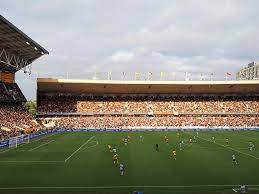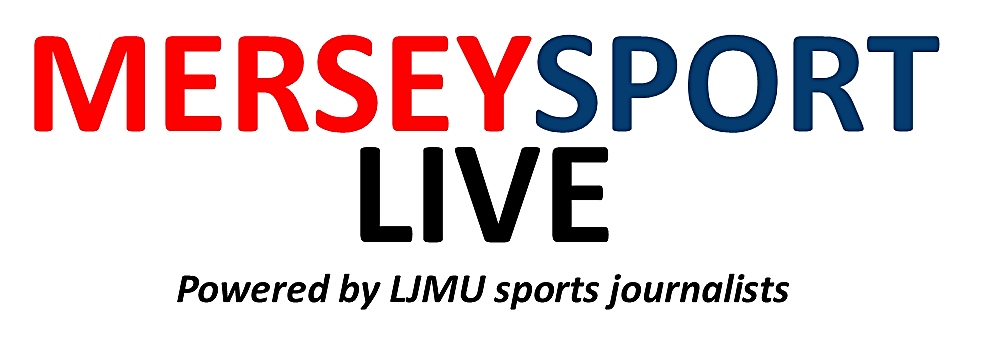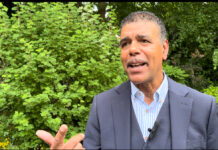A Premier League referee and Liverpool graduate says those taking-up the whistle should be confident and positive.
Former University of Liverpool student John Brooks discussed what it takes to get to the highest level of English football with Mersey Sport Live.
As a fresh 14-year-old Brooks started out in a career that would eventually see him walk out at The Molineux to referee his first game in the Premier League at the age of 30.

He said: “As a referee you remember every first game in each league. So, my first Premier League game was midweek at The Molineux for Wolves vs Burnley. There were multiple other games on at the same time in a busy midweek fixture list.
“The game went really well, no problems. Walking out was just a great feeling. You can feel it’s a huge event.”
Brooks said that while it may be a long journey he was still considered “relatively young” to be in charge of Premier League matches in his early 30s.
“Me being thirty starting out in the Premier League was relatively young in refereeing terms,” he said.
“Some players at that age are coming to the end of their careers whilst I was just starting mine out in the top-flight. I needed to be just as physically fit.
“At the same time there needs to be balance with having the experience and the ability to do it. Throwing someone in too early would be a really daunting experience.”
The Leicester-based referee stressed that commitment is key to getting to the top of the game.
📄 John Brooks leads a team of 6️⃣ PGMOL officials appointed by UEFA to the #EURO2024 qualifier between France and Gibraltar this evening.
Elsewhere, David Coote has been appointed to his fourth group stage game at the FIFA #U17WC, acting as VAR in the Group E fixture between USA… pic.twitter.com/jowJJUqAPG
— PGMOL (@FA_PGMOL) November 18, 2023
He said: “With every promotion more commitment is needed. I went from kids’ football to adults’ football and then from there moved onto Saturday football, the local non-league games.
“You can find yourself travelling up to 50 miles one way for a game as the lower leagues move into cross country. That is a whole day’s work when the match fees are not rewarding.
“I started my first refereeing course for two reasons. Firstly, my club folded for various reasons, and then I was starting out on my Duke of Edinburgh and needed to develop a new skill, so refereeing ended up being that skill. I stopped playing football and started refereeing Under 12s and Under 13s. After that, if you want to, you can put yourself forward for each next level. I was always hungry for the next step.
“You look at the numbers there’s probably around 100 contracted referees in the country but there’s over 30,000 registered referees. It gets really narrow and competitive towards the top.”
Speaking about the pressure on referees, Brooks highlighted that with experience, games become less of a worry but there’s still very much a nervous energy.
He said: “You’ve just got that feeling that you want it to go well. For multiple reasons as well, firstly self-pride. It’s my career and profession, I want it to go well. But also, it’s massively important for the clubs and the fans.
“I want to referee well for those people. When it doesn’t, we are upset. Referees do get upset when they make mistakes. You have to make unpopular decisions. When the decisions are wrong that’s hard to take.
“You have to be the best to be selected. We all want to be in form and perform well to make sure we are selected for matches.”
Despite having achieved so much so early on in his career, Brooks appeared to still have a lot of ambition.
“I have managed to get myself onto the FIFA International list officiating in the European competitions which is great experience,” he said.
“It goes without saying that I want to try and progress my refereeing both domestically and internationally.”
View this post on Instagram
As he talks through an average week of doing his job, Brooks admits it’s not always as glamourous as it looks but it is clear football is where his passion lies.
He explained: “I talk about my average week to people when it’s a European week. I could be refereeing on a Saturday in the Premier League, Sunday on VAR and then maybe have Monday off. There’s great recovery processes in place. With our coaches, we review and analyse our performances so we can continually develop and improve.
“Then, for example, one week I was travelling to Azerbaijan on Tuesday for a game out there on Thursday, You haven’t got all this free time to explore that people might think.
“For me I love football and I now get to referee the biggest teams and the best players in the world. I’ve got a really important job in showcasing that event. And refereeing has given me the opportunity to have the best seat in the house.”














